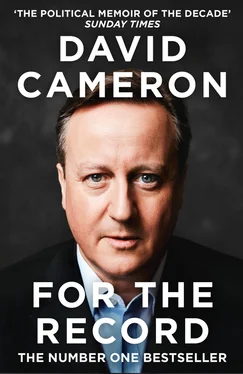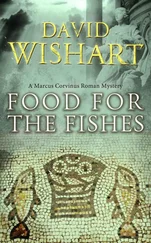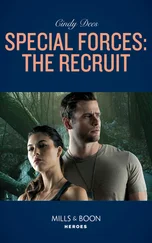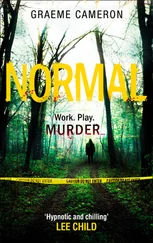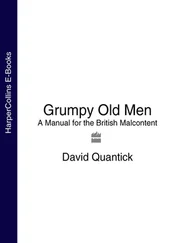The stories of excessive drunkenness, restaurant trashing … all these things are exaggerated. I was never arrested. I was never completely insensible from drink. However, it is true that the election ritual was being woken up in the middle of the night by a group of extremely rowdy men turning your rooms upside down. In my case this was made worse by the fact that I had had a party the night before, and there were dozens of empty wine bottles just outside my door. I have a pretty clear memory of walking from my bedroom into my sitting room to find a group of people making a terrible racket, with one of them standing on the legs of an upended table, using a golf club to smash bottles as they were thrown at him.
I can’t swear that one of these people was Boris Johnson, but he was certainly a member at the time. Boris has claimed subsequently that he was unable to climb over the wall into my college. I’m not sure I believe his story. But I’m not totally certain of my own, either. So perhaps I should leave it there.
What did I love most about Oxford? I did love the work.
Vernon Bogdanor was, and still is, one of the leading experts on the UK constitution, electoral systems and – interestingly – referendums. The opposite of the fusty don in an ivory tower separated from the real world, he was always making us relate political history and constitutional theory to present-day politics.
I was taught economics by the brilliant Peter Sinclair, who could write simultaneous equations on a blackboard using both hands at the same time. His lectures were always packed, as he knew better than anyone how to bring the subject to life. Years later he surprised me by turning up unannounced to help me canvass when I first stood for Parliament, in Stafford in 1997. Peter bounded up to the first door, and told the unsuspecting inhabitant, ‘I was your candidate’s tutor at Oxford and he really is very clever.’ Needless to say, the voter was both baffled and unmoved. I, on the other hand, was very touched.
One of the many things Oxford taught me was how to handle stress. Looking back, it seems unfair that we had just eight three-hour exams, squeezed into little more than a week, to justify our entire three years’ work as an undergraduate. In my case there was no dissertation, no coursework, no pre-marking – nothing except for those exams. The stress was quite extraordinary.
Talking about getting a first at Oxford is probably almost as annoying as talking about going to the university in the first place. But psychologically it was an important moment for me.
I had absolutely no idea of what I wanted to do once I left. I certainly hadn’t fixed on a political career. Like many others I did the so-called ‘milk round’, and was interviewed by management consultants, accountancy practices and a few City firms, although as this was the year after the great stock-market crash of 1987, most of them had pretty much stopped recruiting. One interview was with a young management consultant working for McKinsey called William Hague. He didn’t offer me a job – and neither did any of the other leading companies.
Jardines in Hong Kong were keen to have me back, but while I was considering this I saw an advertisement for the Conservative Research Department (CRD), and remembered coming across it when I was working with Tim Rathbone. There is no doubt that the interview that followed, and taking the job that was offered, changed my life even more than going to Oxford. It set me on the path of the political career that the rest of this book describes.
I only really knew I wanted to dedicate myself to politics and pursue a political career once I started working in it. But after that I was in absolutely no doubt. It was a vocation, the only thing I really wanted to do. I wanted to serve. I cared deeply about my country. I believed in public service. And I came to see – and to believe profoundly – that it is through political service that you can make the greatest difference.
4
It is one of the most famous moments in modern British politics. The chancellor of the exchequer is standing outside the Treasury, in front of the cameras, explaining that despite all his efforts and all his promises, Britain is suspending its membership of the Exchange Rate Mechanism of the European Monetary System.
It was a full-scale political disaster. And behind Norman Lamont’s right shoulder, there I am.
So how did I come to be there?
If you want to learn about Conservative politics at the national level, there is no better place to be than the CRD. Neville Chamberlain founded it in 1929, and put it under the directorship of a most unusual man: Joseph Ball, half politician, half secret agent. Ever since, it has been a strange mixture of political intelligence service, policy workshop and finishing school for future politicians. Iain Macleod, Reginald Maudling, Enoch Powell, Douglas Hurd, then later Chris Patten and Michael Portillo, were all graduates of this academy. So were three members of my first cabinet: Andrew Lansley, George Osborne and me.
I was hired in the autumn of 1988 to cover trade, industry and energy, which meant following two government departments: the DTI, which was led by David Young, and the Department of Energy, where Cecil Parkinson was making a comeback after resigning over his affair with Sara Keays in 1983.
I liked Cecil enormously. He was a true believer in what Margaret Thatcher was doing, but he also believed politics should be engaging and fun. He asked me to help with his speeches, including the 1988 conference speech that pledged the privatisation of the coal industry.
David Young invited me to his weekly ‘ministerial prayers’ meeting, where his team gathered without civil servants present to talk about the challenges ahead. This was a great introduction to the many faces of the Tory party. The aggressively Thatcherite (Eric Forth), the ambitious and mainstream (Francis Maude), as well as the unassuming (Tony Newton), the affable (Robert Atkins) and the downright eccentric (Alan Clark). The meetings were a riot of argument and entertainment. When anyone reported back on bad news from the part of the country they represented, Alan Clark would tell them it was their fault for visiting their constituencies and listening to ‘real people’ in the first place.
It was a great pleasure – and a good decision, given his extraordinary dynamism – to welcome David to No. 10 as an adviser on business and enterprise twenty-two years later when I became prime minister. He was instrumental in delivering the ‘Start-Up Loans’ proposal that has created thousands of successful new businesses.
While a CRD desk officer learns a great deal about specialised areas of policy, one of the advantages, and challenges, of working there is that before long you have to be an expert on everything the government is doing. And in the process you become professional. Indeed, the things I learned in those years are, I think, part of the answer to the charge that we have too many ‘professional politicians’ in British politics.
Yes, we need people in Parliament from all walks of life, and with many different life experiences. And the Conservative parliamentary party is far broader in its make-up today than it was ten or twenty years ago. And yes, I gained hugely from the seven years I spent in business, outside the political world. But while politics is a vocation, it is also a profession. There are tools and skills that you need to master. Not just the speech-making, press handling or campaigning, but how you get things done in a political system, how you make change happen .
In my case, it wasn’t long before I was briefing ministers for vital media appearances. It staggers me today to think of the access to senior cabinet ministers that I had when I was still in my twenties.
Читать дальше
